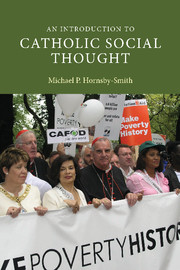Book contents
- Frontmatter
- Contents
- List of tables and figure
- Acknowledgements
- Dedication
- List of abbreviations and acronyms
- PART I SOCIAL REALITY AND SOCIAL ANALYSIS
- 1 Introduction
- 2 Capitalism in a global context
- PART II THEOLOGICAL RESOURCES
- PART III JUSTICE ISSUES
- PART IV ACTION RESPONSES
- Appendix: Selected campaigning organizations
- References
- Index
2 - Capitalism in a global context
Published online by Cambridge University Press: 14 January 2010
- Frontmatter
- Contents
- List of tables and figure
- Acknowledgements
- Dedication
- List of abbreviations and acronyms
- PART I SOCIAL REALITY AND SOCIAL ANALYSIS
- 1 Introduction
- 2 Capitalism in a global context
- PART II THEOLOGICAL RESOURCES
- PART III JUSTICE ISSUES
- PART IV ACTION RESPONSES
- Appendix: Selected campaigning organizations
- References
- Index
Summary
THE SOCIAL CONTEXT
In the previous chapter a significant number of instances of need or seeming injustices, both domestically within our own society and internationally between nations, were identified. The next stage is to provide an analytical framework for understanding injustices and an attempt to explain them in terms of some theory or understanding of causality. What is it that ‘causes’ social injustices such as increased income inequality between rich and poor both within and between nations? Why are people poor or homeless in affluent societies? What institutions determine major global economic decisions? Whose interests do they favour? Why are there so many asylum seekers from specific countries and refugees from other countries? Why are there migration flows of people seeking employment far from their own homes? What social policies appear to be harmful to families? Whose interests are being served by the international arms trade and what are its consequences?
These are basically sociological questions seeking explanations for the social outcomes of our existing social, economic and political decisions and the task of answering them is that of social analysis. In setting out on this quest it is relevant to note, in particular, four historical and contextual events which together constrain the way we look at the world at the beginning of the twenty-first century. The first is the Second World War, which generated the possibility of nuclear annihilation on a global scale, and which triggered the ending of the period of European colonialism and imperialism, the emergence of new nations and new international agencies such as the UN and its Security Council, and the division of the world into two major blocs led by two super-powers, the USA and the Soviet Union.
- Type
- Chapter
- Information
- An Introduction to Catholic Social Thought , pp. 20 - 40Publisher: Cambridge University PressPrint publication year: 2006

